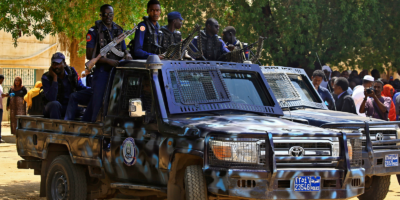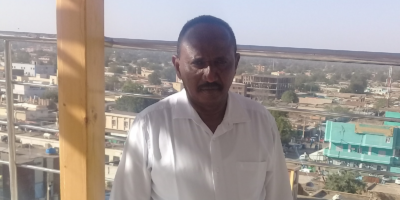Press release
Written and translated by: The Committee for Justice
Geneva, September 7, 2021
In response to a complaint filed by seven Egyptian rights organizations, three United Nations special rapporteurs have sent a memorandum to Cairo commenting on the recently issued executive regulations of the NGO Law No. 149 of 2019, arguing that it essentially restricts and threatens freedom of association in Egypt.
The UN Special Rapporteur on the right to freedom of peaceful assembly and of association, the UN Special Rapporteur on the situation of human rights defenders, and the UN Special Rapporteur on the promotion and protection of human rights and fundamental freedoms while countering terrorism sent a memorandum on 8 July 2021 to the Egyptian authorities criticizing some provisions in the NGO Law and its executive regulations, with demands to review it and open an expanded societal dialogue about it.
The executive regulations confirm previous concerns:
On March 23, 2021, the organizations (Committee for Justice, El Nadeem Center for Rehabilitation of Victims of Violence, the Arab Network for Human Rights Information, the Belady Center for Rights and Freedoms, the Cairo Institute for Human Rights Studies, the Egyptian Commission for Rights and Freedoms, and the Freedom Initiative) sent a complaint to the rapporteurs demanding action against the aforementioned law and its regulations.
In their complaint, the institutions indicated that the law and its related regulations confirmed previous concerns raised by many independent NGOs, as well as concerns raised by United Nations special procedures on various occasions, in relation to this law, which legitimizes the further paralysis of civil society and threatens freedom of association in Egypt.
No social dialogue:
The organizations also said that the law and its executive regulations were issued without publishing any of the drafts or consulting civil society during its drafting process. They pointed out that it is “another attempt by the Egyptian military regime to close any limited space remaining for independent organizations.”
The complaint was focused on the fact that the law and its executive regulations stipulate a limited purpose for local and foreign NGOs, confining them to social development, thus marginalizing organizations that do not meet the traditional definition of development.
Criticisms of the provisions of the law and its executive regulations:
The foundations added that the law and its regulations include a long list of vague and ill-defined activities that should not be undertaken by NGOs, for example: they are not allowed to carry out any political, partisan, or union-related activities, nor can they conduct opinion polls or field research and publish any of their results except after obtaining the approval of the Central Agency for Public Mobilization and Statistics to ensure their accuracy, impartiality and suitability for the association’s activity. The administrative body may also object to the registration of an NGO if it considers that its activities are inconsistent with “public order,” “public morals,” and other vague criteria whose interpretation is left to the arbitrary discretion of that body.
With regard to funds, the law allows receiving funds inside Egypt by notification, whether the source is natural or legal Egyptian persons or licensed foreign NGOs, but it prevents diplomatic missions from supporting the activities of associations through a simple notification, and the law and its regulations require permission before disbursing funds from abroad.
Furthermore, the law treats the assets of associations as public funds (Article 23 of the law), which means that in criminal matters, association officials are treated as public officials. They, in turn, are subject to heavier penalties for financial violations, up to life imprisonment.
An unconstitutional law that contradicts Egypt’s international obligations:
In their complaint, the rights groups stressed that the law is unconstitutional because it violates one of the basic guarantees stipulated in Article 75 of the Egyptian constitution, which explicitly states that citizens have the right to form NGOs as soon as they notify authorities, and the right to engage in activities freely.
The law also contravenes Egypt’s international obligations, as it imposes severe restrictions on the activities of NGOs, grants broad discretion to the authorities to supervise and resolve them, and limits the ability of NGOs to engage with foreign actors.
Rights claims from the United Nations:
At the conclusion of their complaint, the NGOs demanded the intervention of the special rapporteurs with the Egyptian government to urge it to review and amend Law 149 of 2019 and its executive regulations to be in line with the Egyptian constitution as well as international standards. They also called on Egypt to close Case 173 of 2011, and immediately lift the travel ban and asset freeze issued against human rights defenders in the country.
The rights groups also urged the UN rapporteurs to intervene with the Egyptian government to fulfill all its obligations to respect, guarantee and protect human rights and freedoms in all circumstances, and to put an end to its systematic campaign against civil society work in Egypt, human rights defenders and activists, in a way that ensures their ability to carry out their legitimate work without fear of reprisal and without restrictions including judicial harassment.





